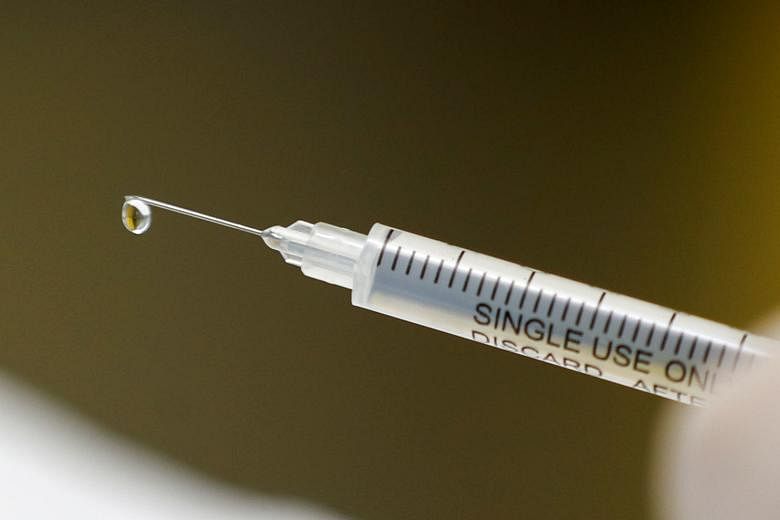SINGAPORE - Researchers from the National University of Singapore (NUS) and Monash University in Australia are developing a Covid-19 vaccine that could be ready for clinical trials by the end of next year.
The vaccine, modified from a cancer drug, has undergone animal studies, and researchers are hoping to conduct clinical trials in Singapore and Australia.
Called Clec9A-RBD, it is the third coronavirus vaccine that Singapore is involved in developing.
Known as a fusion protein vaccine, it is made by combining an antibody that targets parts of the immune system with an antigen, which induces an immune response to protect against a chosen pathogen.
Scientists can therefore rely on the same antibody to fight different diseases by simply switching the antigen that is attached to it, said one of the researchers, Associate Professor Mireille Lahoud from the Monash University Biomedicine Discovery Institute.
She told The Straits Times on Sunday (Sept 20) that the antibody in Clec9A-RBD had previously been used to create vaccines to fight a variety of diseases, such as cancer, influenza, and hand, foot and mouth disease.
So when the pandemic struck in February, she and two other researchers decided to use it to make a vaccine that could fight against Covid-19.
The vaccine targets a specific part of the immune system known as the dendritic cells.
These cells "sample" parts of the environment around them and flag dangers to the rest of the immune system.
Likening their role to that of a conductor in an orchestra, Prof Lahoud said: "If you want to deliver a vaccine or immunotherapy, they're the cells you want to target."
The researchers developed a protein that binds to a receptor on these cells, teaching the immune system to fight off Sars-CoV-2, the virus that causes Covid-19.
Three main things set this vaccine apart from others in the global race, said the researchers.
First, it is "very good" at stimulating the weak immune systems of the elderly, said another of the researchers, Associate Professor Sylvie Alonso from the department of microbiology and immunology at the NUS Yong Loo Lin School of Medicine.
Prof Alonso, who co-leads the school's infectious disease translational research programme, explained that this is because the dendritic cells it targets are present in significant quantities in humans throughout their entire lifespan.
This means that a vaccine that targets such cells will likely be as effective on the elderly as it is on the young.
This is supported by animal models the team has run, with a high level of antibodies observed in both old and young mice that were injected with the vaccine.
Prof Lahoud said: "Given the enormous impact that Covid-19 has had on aged care facilities globally, there is an urgent need for a vaccine that can work in older people, who often have weakened immunity and do not respond as effectively to vaccines."
Second, the vaccine only requires a single dose and a small amount of antigen each time due to its targeted delivery system.
"Usually when you inject a vaccine, you're waiting for the immune system to pick it up. In this case... it's like e-mailing it directly to the cells," explained Prof Lahoud.
Prof Alonso said: "These are attributes that are essential in a pandemic situation where you need to produce millions of doses… a single shot also means the person does not have to come back a second time for another dose."
She added that one failing of multi-shot vaccines is that people who have been injected with the first dose may feel they have been granted protection from the virus and not come back for the essential second or third jab.
Finally, due to its nature as a fusion protein vaccine, Clec9A-RBD can potentially be adapted to fight not just Sars-CoV-2, but coronavirus mutations and other new diseases in the future.
"This vaccine strategy must be seen as a plug-and-go platform that can be rapidly deployed to address any incoming threat," said Prof Alonso.
Prof Lahoud said: "I'm hoping for a vaccine for Covid-19, but also to develop this so that we are future-proofing. Once we've established this, we'll be able to apply it to whatever (disease) comes next."
The researchers are currently seeking approval and funding to further their research, and intend to approach the health authorities in both countries in the coming months.












